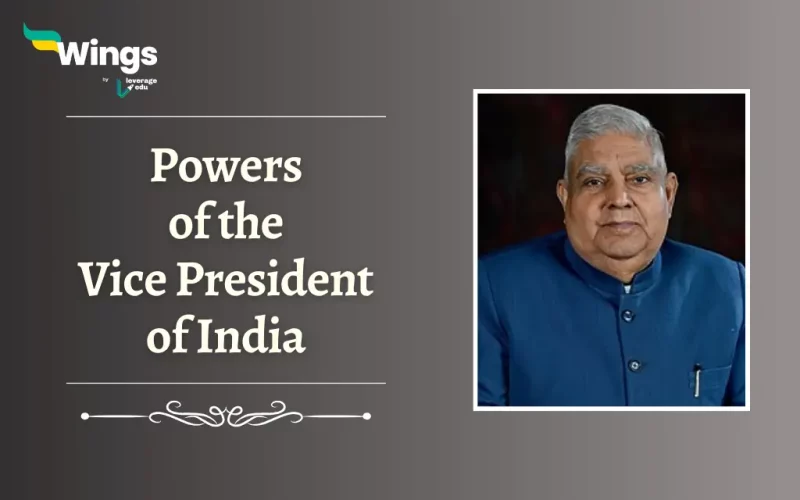After the President of India, the Vice President of India is the most powerful position and is the second highest constitutional office. The latter can also as the former only for six months, the time taken to elect the next President. The attest Vice President of India, as of 2024, is the Hon’ble Shri Jagdeep Dhankar of the Bhartiya Janta Party (BJP). Moreover, the Vice President is elected indirectly by the electoral college. That consists of elected or non-elected people from both the houses of Parliament- Rajya Sabha and Lok Sabha. The table below gives an insight into the position of the Vice President of India. Scroll up to also learn the powers of the Vice President of India.
| Role | Vice President of India |
| Deputy to | President of India |
| Constitutional Rank | Second-highest after the President |
| Order of Precedence | Second |
| Line of Succession to Presidency | First |
| Chairman of | Rajya Sabha (Ex Officio) |
| Election Method | Indirect election by an electoral college |
| Electoral College | Members of both Houses of Parliament |
| Voting System | Proportional representation using single transferable votes |
| Voting Conducted by | Election Commission of India |
| Voting Secrecy | Secret Ballot |
| Additional Roles | Chancellor of Panjab University and Delhi University |
Table of Contents [show]
Article 63 of the Constitution of India
The Hon’ble Constitution of India, in Article 63, states that there should be a Vice President in India.
- However, if needed, the Vice President can act as the President of India.
- Moreover, the Constitution has not defined who would fill in the chair of Vice President.
- That is if the present one has left office or in situations where the present VP acts as the President.
Article 64 of the Constitution of India
As per Article 64 of the Constitution of India, the Vice President of India is the Ex-Officio Chairperson of the Rajya Sabha.
- Other than this, the VP cannot hold any other office of profit.
- The VP is not entitled to any allowance or salary.
- Additionally, if at any point they are not performing the duties of Chairman to act as the President or discharges.
Also Read- What is the Full Form of AVP?
Article 65 of the Constitution of India
In the cases of resignation, death, or removal of the president of India, the VP can act as the President of India. This can be extended only for six months until another President is elected.
In case of discharge from function by the President of India on the grounds of absence, illness, or any other cause, the Vice President can perform all the necessary functions on its own. In such situations, they have the immunities, privileges, and powers to perform the necessary actions.
Related Blogs
Lastly, we hope you liked our blog and gained an understanding of the Powers of the Vice President of India. Moreover, you may even read more blogs and empower yourself with knowledge regarding Civics and Polity!
 One app for all your study abroad needs
One app for all your study abroad needs















 45,000+ students trusted us with their dreams. Take the first step today!
45,000+ students trusted us with their dreams. Take the first step today!
